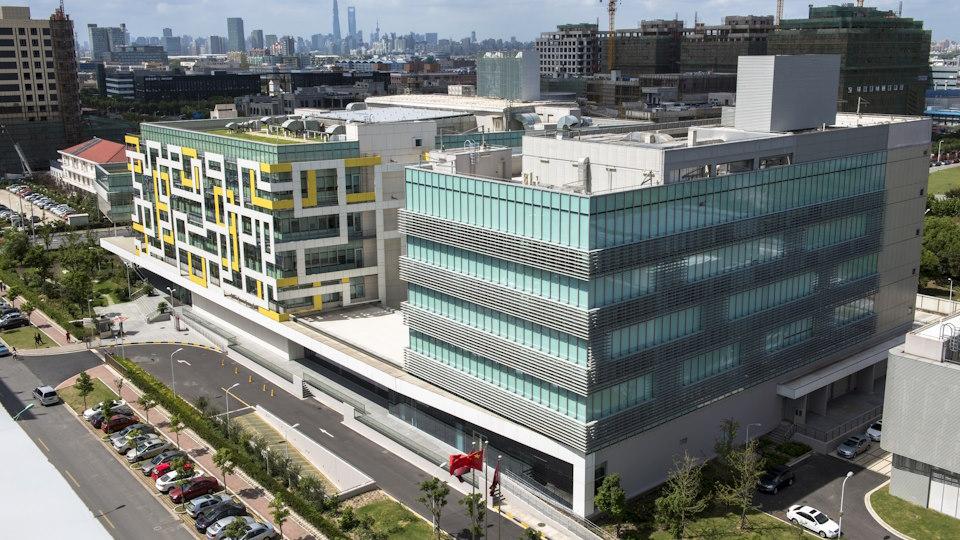China detains AstraZeneca workers in data, imports probe

AstraZeneca China HQ: at Shanghai Zhangjiang Hi-Tech Park
AstraZeneca has confirmed that some of its current and former employees have been taken into custody in China as part of an investigation into data privacy breaches and the import of unlicensed medicines.
The probe reportedly started earlier this summer and involved around five Chinese nationals who were involved in the marketing of oncology drugs within China, according to a Bloomberg News report.
The suggestion in the report – which cites people familiar with the matter – is that police in the Shenzhen region are looking into the importation of a liver cancer drug that is not approved for distribution in China, as well as the collection of patient data that may have broken Chinese privacy laws.
"We are aware a small number of our employees in China are under investigation and we have no further information to share at this point," said AZ in a statement.
The detentions come against a backdrop of a major crackdown by the Chinese government on corruption in the healthcare sector, that has reportedly led to a number of investigations against public health officials, healthcare professionals, and employees of domestic drugmakers.
Shares in AZ – which in recent weeks became the UK's first £200 billion company – dipped more than 6% yesterday after the news emerged, but closed down around 3%.
AZ has a strong presence in China – the largest of any foreign pharma group – with a headquarters and R&D centre in Shanghai and a network of supply sites in Wuxi, Taizhou, and Qingdao, employing around 16,000 people.
China has expanded rapidly in recent years to become the second-largest pharma market globally after the US, driven by a massive ageing population with rising spending power, as well as efforts by state and regional governments to speed up access to new therapies – particularly in oncology, where AZ is very strong.
The company recently completed the construction of a new manufacturing site in Qingdao for inhaled medicines and is also increasingly tapping China's biotech industry for new drug candidates with recent deals, including a $1.2 billion takeover of cell therapy developer Gracell Technologies.
The country has been a major source of revenue growth for AZ for many years – with sales there reaching $5.9 billion last year, around 13% of group revenues – although, there has been a slowdown in growth of late in part as a result of the country's volume-based procurement (VBP) initiative.
The VBP is essentially a bulk-buy scheme for medicine supplied to hospitals, which has been instrumental in driving down prices for many biopharma and medtech companies. AZ thinks that its big-selling Farxiga (dapagliflozin) product for diabetes, heart failure, and chronic kidney disease may be included in the next VBP round in the second half of 2024.
Last year, there were reports that AZ has been considering spinning out its Chinese business and listing it in Hong Kong or Shanghai to insulate it from rising geopolitical tensions over trade sanctions, the status of Taiwan, territorial disputes with the Philippines, and tacit support to Russia in its invasion of Ukraine.












